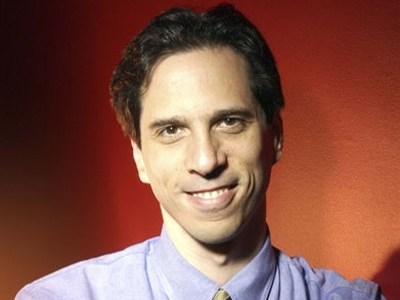Oct. 3, 2011 – Spurred by the Federal Communications Commission report, “Information Needs of Communities,” Knight Foundation today announced new projects to highlight ways public policy improvements can in turn improve local news and information flows. The new projects were announced today at Arizona State University, where the FCC is hearing testimony on its report.
As a part of the Knight-funded effort, the FCC report’s author Steven Waldman has agreed to become a visiting senior media policy scholar at Columbia University’s Graduate School of Journalism, studying emerging media issues and exploring implementation strategies for the report’s recommendations.

Steven Waldman
In addition to the Columbia fellowship, other grants funded by Knight will:
-
Encourage debate and action around the report’s major recommendations, through a series of events and research papers hosted by at least 10 leading universities, The series is in partnership with Carnegie Corporation of New York. Arizona State University Dean Chris Callahan announced the forums at today’s ASU FCC hearing.
-
Help plan for the creation of “state C-Spans” in all 50 states – as recommended in the FCC’s report – through a meeting of the National Association of State Public Affairs Networks at the Newseum.
Previously, Knight had announced it would:
-
Examine how tax law may be stunting both philanthropic participation in and the overall growth of nonprofit media – and to suggest improvements – by creating a task force headed by the Council on Foundations.
-
Develop reliable metrics on media philanthropy, so that people can know what’s funded in their communities and foundations can evaluate the field and level of funding. This effort is in partnership with GuideStar, Grantmakers for Film and Electronic Media (GFEM), Ford Foundation and the Foundation Center.
“We want to help those who think this high-quality FCC study and its important public policy recommendations should stay alive in the public sphere and, ultimately, happen,” said Eric Newton, senior adviser to the president of Knight Foundation.
Inspired by the Knight Commission’s bi-partisan study on community information needs, the FCC this year released the most comprehensive national look at media policy in a generation. It focuses on practical ways that society can improve the environment for local accountability journalism. Local watchdog reporting is the particular type of journalism most needed in the current climate, it said, since commercial newspapers and broadcasters in the United States have cut more than 15,000 local journalism jobs in recent years. Traditional media are struggling to adapt to the new economics of media in the digital age, making this transition a critical time for journalism in America.
Knight also had announced its support of the report’s recommendation that philanthropy as a whole take on a greater interest in local news and information projects. This has been a priority of Knight Foundation, which is devoted to “informed and engaged communities.” The Knight Community Information Challenge, for example, offers matching grants to community and place-based foundations for news and information projects.
A full-color version of the FCC’s report, in book form, will be available from Carolina Academic Press in early November.
About the John S. and James L. Knight Foundation
Knight Foundation supports transformational ideas that promote quality journalism, advance media innovation, engage communities and foster the arts. We believe that democracy thrives when people and communities are informed and engaged. For more, visit www.knightfoundation.org
Media Contacts:
Marc Fest, vice president/communications, Knight Foundation, 305-908-2677; [email protected]
